Sir Dave Brailsford's Manchester United vision: What does it look like, and how will it be shaped?
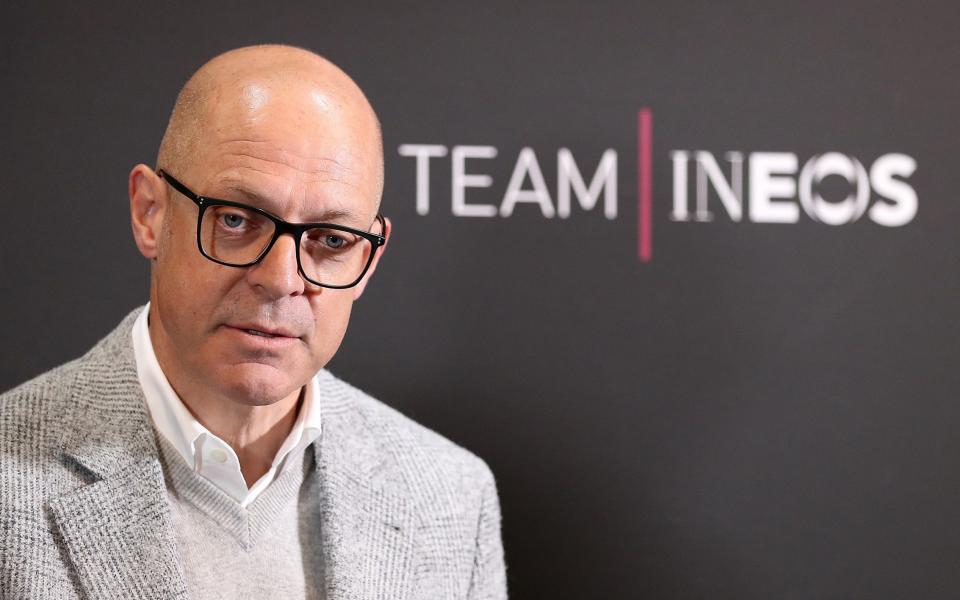
In the recent Sky Sports documentary series, Secrets of Success, former England cricketer Nasser Hussain spoke to sporting leaders about their methods and strategies, including the man now tasked with overseeing football operations at Manchester United.
Sir Dave Brailsford was the brains behind British Cycling’s extraordinary success and, as director of Ineos Sport, he is the person United’s influential new minority shareholder Sir Jim Ratcliffe has entrusted with helping to revive the flagging fortunes of England’s biggest football club.
Brailsford employed many practices in the pursuit of peak performance: from the aggregation of so-called “marginal gains” and involvement of psychiatrist Steve Peters to help riders control their “chimp” - the emotional, irrational part of their brain that has the potential to inhibit performance - to what he termed his CORE philosophy (commitment + ownership + responsibility = excellence).
Here, Telegraph Sport listens to Brailsford discussing his work with Hussain and looks at how his theories could be applied at United, on and off the pitch.
Management style: ‘Dictator’ vs ‘Enable’
“If we’re not careful you can very easily fall towards a stick rather than a carrot. Fundamentally, most of us perform better when we’re chasing something and using a carrot - you’re enabling that drive, collectively or individually. The dictator/control model I’m not sure is the ideal way to be getting optimal human person. Peters was a big proponent of ownership to the point where we got all the coaches together and said: ‘If the coaches have all got the crowns on their heads, we’re going to take them off and put them on the heads of the riders and say you’re the king and queens of your own destiny and we’re here as enablers’.
Finding the right balance between “carrot and stick” has proven difficult for successive United managers and Erik ten Hag is no different in that regard after a torrid start to this season. Ten Hag has leaned more towards an autocratic approach, if not to quite the same extent as his fellow Dutchman Louis van Gaal, who stood accused of being far too controlling and dictatorial at Old Trafford. When Ten Hag scrapped a planned day off and ordered his players to run 13.8km the morning after a 4-0 thrashing by Brentford at the start of last season - the distance his team had been outrun by their opponents - the manager won admiration for also taking part in the punishment.
Ten Hag insists he listens to his players, holds regular meetings, both individually and collectively, and always takes on board their soundings and would probably feel he has many of the “enabler” characteristics Brailsford talks about. But it is thought some players feel the intensity of training sessions since the pre-season tour of the US in the face of such a relentless schedule has contributed to the club’s injury problems. Concerns have also been raised privately about cavalier tactics that have left the team too open, particularly at a time when multiple key players have been missing through injury and there was a feeling they would benefit from a more compact shape.
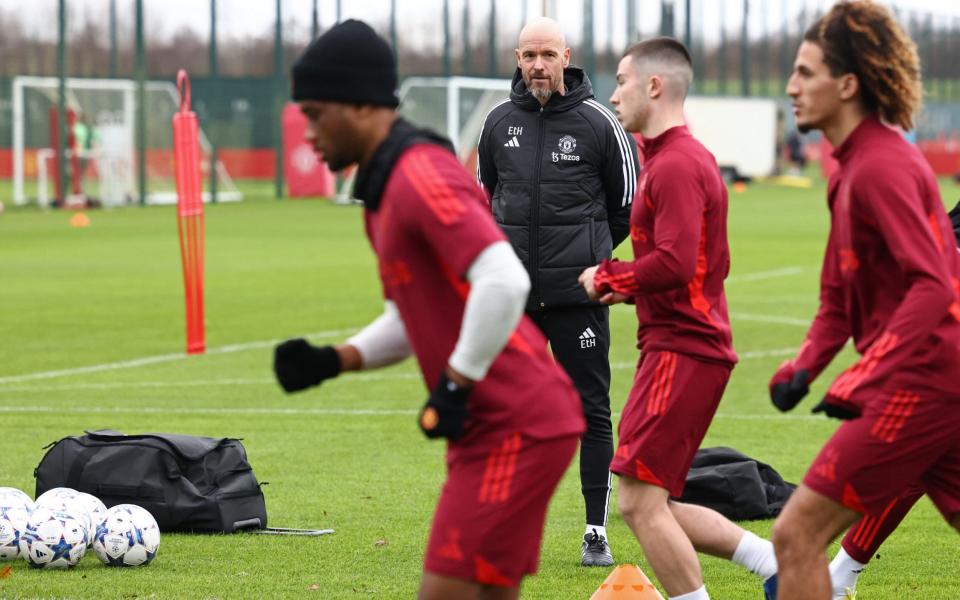
Tackling conflict
“I think we all feel we’ve got to resolve conflict and pull together, it’s got to be a happy family. But some of the best teams I’ve managed haven’t necessarily been the happiest places. There has been a bit of friction, a bit of angst, but if it’s discussed and talked about and aired then nine times out of 10 you’re going to manage it and if you can’t don’t put them in the same team, don’t select them. You’ve got to address it. You can’t ignore it. Because if you’re feeling that there some difficult behaviours or a difficult character then everyone else knows that as well. I think if you’re in charge of that organisation and ignore it - they’re too good so I’ll just kind of cut them some slack but I won’t do it for everyone else - then I would say you’re in trouble.”
Scott McTominay admitted this month that, while the atmosphere had been “toxic” at times under previous managers, all the squad was behind Ten Hag amid reports of unrest in the camp. But there have been some divisive issues this season that have still to be adequately resolved, not least the situation concerning Jadon Sancho, who has been banished for almost four months after a falling out with Ten Hag. For some, it has become “the elephant in the room” Brailsford mentions. For Sancho’s part, he feels he has been the victim of double standards with notable inconsistencies in the way the manager has applied certain rules in relation to him compared to some team-mates. There has also been unease in some quarters about a player who has had his mental health struggles in the past being forced to train alone and eat his food out of lunchbox after being barred from using the first team’s facilities.
Cristiano Ronaldo had already left United by this stage last season after a complete breakdown in his relationship with Ten Hag but Sancho is still at the club, his transfer value having plummeted and with United still trying to find a suitable exit route. There have also been some misgivings over the way Raphael Varane and Harry Maguire have been handled. The centre-halves were both dropped to fifth in the pecking order and looked on the way out only for Ten Hag to end up leaning heavily on both at different times, again raising questions about elements of his man-management.
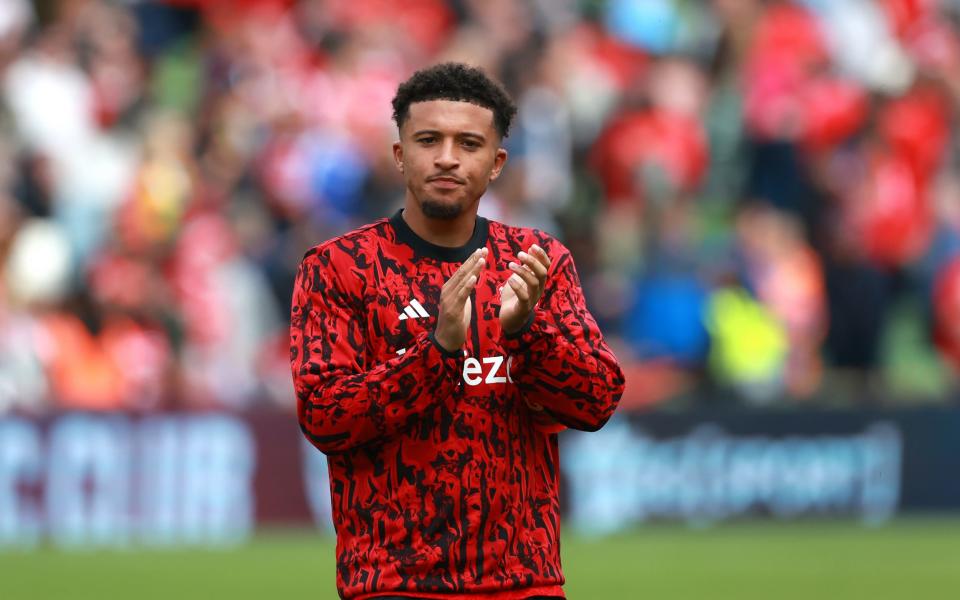
Rule setting
“Sit down together as a group of athletes and we’d like you to talk about training times. If we’re all going to train at 9 o’clock but somebody comes in at half past nine, what do you think we should do? Decide for yourselves, discuss it and come back with a set of rules. And sure enough they come back and the ‘rider rules’, as we called them, were way sterner than anything we’d have come up with. It’s really subtle but it changed the dynamic.”
Nemanja Matic, who left United in the summer Ten Hag arrived, admitted indiscipline had become so bad with players late for training “almost every day” that some of the senior members of the squad set up an internal committee to try to tackle the issue. One season Matic claimed the accumulated almost £75,000 in fines. Ten Hag has admitted he inherited a “no good culture” and immediately set about introducing a raft of rules for players to obey, such as no mobile phones at meal times and strict punishments for turning up late. Marcus Rashford was dropped for a game against Wolves last season after being late for a meeting and Alejandro Garnacho is another who has fallen foul of similar rules. Ten Hag and United’s football director John Murtough insist the players all happily signed up to that new code of conduct from the outset.
Due diligence in recruitment
“Ultimately in any interview we all fall into acting really. But I think there are hints. I think when you look at people’s history - what were like they in their younger years, how did they deal with setbacks at school, when things didn’t work out what did they do? - there are tell tale signs along the way that give you an impression of how driven somebody is. But also how they deal with challenges, setbacks, how they bounce back if they’ve had a really tough time.”
Addressing years of shambolic recruitment is one of the overwhelming priorities for Brailsford and the Ineos team at Old Trafford, hence the desire to bring in an experienced director of football like Dan Ashworth at Newcastle. United’s transfer history in the decade since Sir Alex Ferguson retired is littered with mistakes, often as a consequence of the club not doing enough homework on players.
They only became aware, for example, that the Argentina defender Marcos Rojo was being investigated for an alleged assault on a neighbour after he had signed for the club. Rojo was later cleared. Sancho was bought for £72m from Borussia Dortmund despite issues around his time-keeping and discipline. Others, like Donny van de Beek, have wilted at the first hint of a setback. Brailsford told Hussain it is imperative clubs or teams get to know all aspects of the person they are considering bringing in and moves towards more thorough due diligence around would be signings should be welcomed at United.
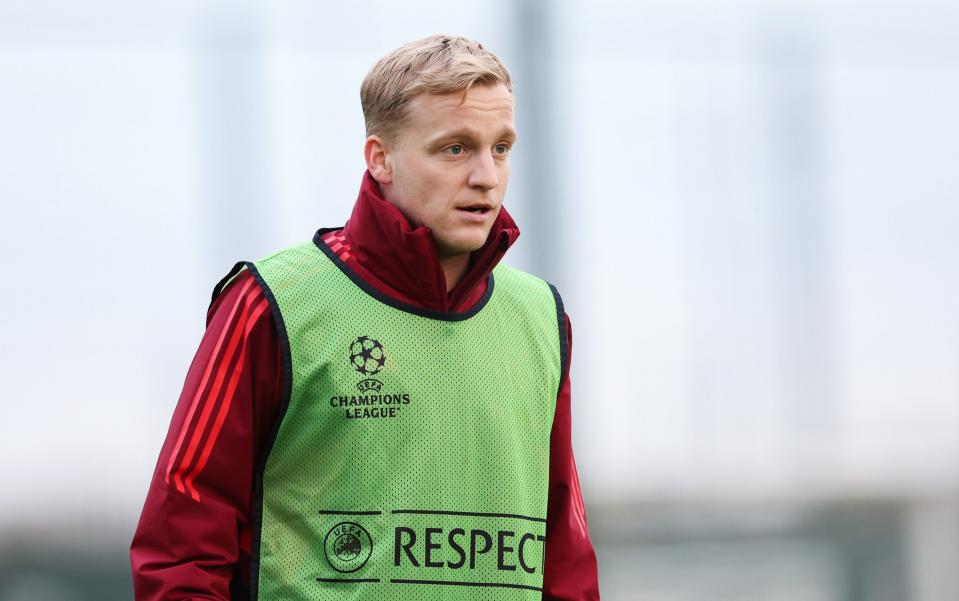
Rooting out complacency: ‘Hunger index’ vs The comfort zone
“If you’ve got the hunger and the talent but you’ve got all the distractions - a lot of stuff going on at the club or there is not an alignment or there is something in the culture, something in their personal life - then that takes away from the simple talent x hunger [equation]. So it made us start to look at athletes who were first year of contract, end of contract, who need a new one, who had just taken a big pay cut or had a big pay rise, who had just got married, had kids, life events, their age. Could we take those elements and think, ‘Actually this person on the hunger index, as we called it, has been impacted?’
United have stockpiled players over the years, dishing out new deals or triggering extension options that were undeserved in an often wholly misguided attempt to “protect value”, and ended up with too many disillusioned, demotivated factions in their squads as a consequence. Ten Hag has sought to break with that culture but the squad still has too many complacent players in it that have been allowed to coast for far too long. France striker Anthony Martial, for example, has been Old Trafford for eight and a half years. It would be interesting to see what Brailsford thinks about the huge drop off in Marcus Rashford’s performance level since he signed a new £325,000 a week five year contract in the summer - and what can be done about it.
Combating fear
“If we can recognise the difference between what we would term a threat state environment - where you’re working off fear, you feel threatened and it’s not necessarily enjoyable - as against a challenge state environment where you see the opportunity and think, ‘Okay, I’m going to try to express myself and see it more as an adventure’. If you can create that challenge state rather than a threat state then you’re in a fantastic place as a team.”
How often have United looked consumed by fear on the pitch in recent years? That has felt particularly prevalent at times this season, with the team imploding quickly in games. Ismael Garcia Gomez, the Galatasaray assistant coach, admitted that the Turkish champions preyed on United’s nerves in the Champions League and sensed they suffered mental “blocks” in games. United lost 3-2 at home to Galatasaray before drawing 3-3 in Istanbul ahead of finishing bottom of the group. Brailsford used Peters to help his cyclists learn how to pre-empt or control their “chimp” in an effort to prevent the emotional part of the brain from hindering his riders’ performance. United have employed sports psychologists in the past - Ralf Rangnick, Ole Gunnar Solskjaer’s interim replacement, brought in Sascha Lense - and whether Brailsford opts to lean on Peters or another psychiatrist at Old Trafford remains to be seen.
Commitment
“If someone is not driven, do they make your team? No. If that deep seated, intrinsic commitment, that desire and hunger is not there for someone to develop then I’m not sure if you want to get to the top, be the best [that you can]. There has to be something inside that is switched on. As any manager or coach will say, you can’t really put your hand inside somebody else and switch that on and off. It’s either on or it’s not.”
When Brailsford talks about commitment, he does not mean what he calls “surface of the ocean motivation”, which he says can fluctuate from one day to the next. While talent is imperative at the highest level, Brailsford feels it is ineffective without a deep rooted will to get better. But United have signed or stuck with far too many players who lack that sort of deep-rooted commitment to self improvement, hence the frightening inconsistencies and erratic nature of their performances over so many years. How often has the character, mentality and personality of players been called into question at Old Trafford.
Jose Mourinho said this month that there were still players at United now that he had warned the club within months of joining in May 2016 did not have what it takes to be successful. Solskjaer admitted in September there were too many players who thought they were better than they are. And Ten Hag said in January that United had bought “an unimaginable number of players in recent years who have not been good enough”.
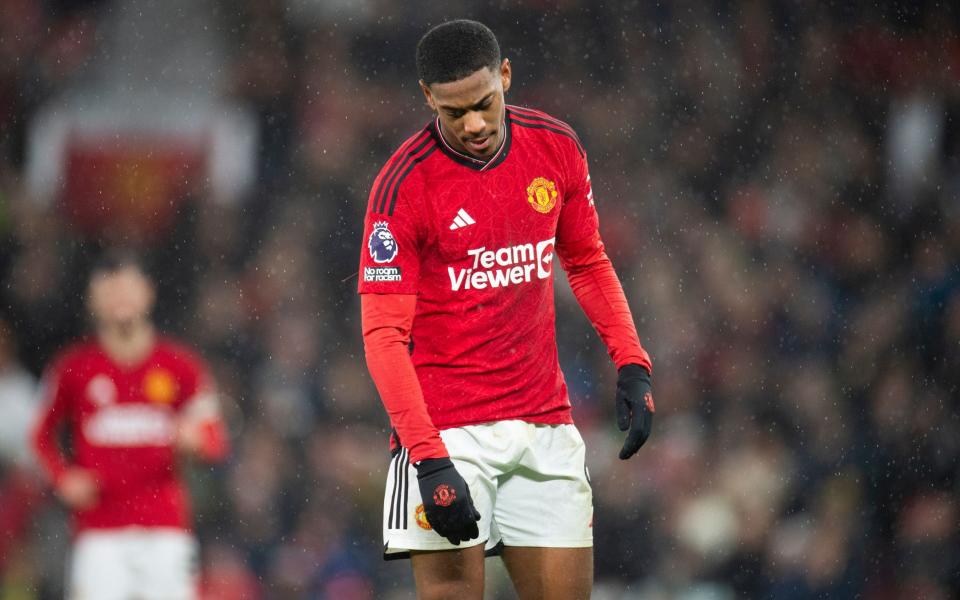
Winning behaviours vs losing behaviours
“You could be doing all these winning behaviours but just one or two of these losing behaviours and it outweighed all these winning behaviours. Moaning, for example. If I moan about everything and every time I come in it’s ‘Same old, same old, this that and the other’ - moaning is very much a losing behaviour. You can either moan about everything or you can take it on board and say I’m not going to do that, despite feeling disgruntled about something, I’m going to try to feel positive about it. For everyone winning or losing behaviour there is the opposite.”
Ten Hag would be the first to agree with this and, to his credit, has never tried to use injuries or the failings of players as an excuse for poor performances and results. But there have been too many moaners and sulkers in that dressing room over the years and losing behaviours have too often been allowed to take root and have a corrosive effect on the group.
Marginal gains and planning backwards
“I can remember at the start of the Olympic programme the goal, the mountain seemed such a long way away. We’d never done it before, did we really believe we were going to get up there? Where was this quantum step going to come from? The whole margin gains thing was the idea of lets look for whatever we can just to get better. There’s something very powerful about progression rather than planning for perfection. Perfection is very, very difficult. Humans will probably nearly always fail trying to build for perfection but progression we can grow.”
Two years before Brailsford was first employed as a consultant by British Cycling in 1998, Britain was ranked 17th in the world and won just two bronze medals at the Atlanta Olympics. The idea of becoming the best then seemed fanciful. United, similarly, face a long road back to the top after a decade in the wilderness. Brailsford had worked backwards by first figuring out what they wanted to win and what it would take to do so to recognising where British cycling was starting from and creating a plan to close the gap. By 2012, Britain was No. 1 in the world and claimed eight gold medals at the London Olympics.
The concept of marginal gains looked at improving as many pieces of the jigsaw as possible that improve overall performance by 1 per cent. Ten Hag recognised United were deficient in many areas, not least nutrition which led to the appointment of a new chef Omar Meziane in January and the implementation of individual nutrition strategies tailored to their specific needs. United are playing catch-up in other areas, too, including data analysis and scouting and Brailsford’s audit is expected to review every facet of the club’s football operation.
Sir Dave Brailsford: Cycling visionary who has inspired disciples and doubters
As they retired to their sofas following Christmas dinner this year, Manchester United fans could be forgiven for feeling even more stuffed than usual. They will still be digesting the seriously big development that is Sir Jim Ratcliffe’s acquisition of 25 percent of the club, after 13 long, drawn-out months, and wondering what it all means. Who will be brought in? What are Ineos’s intentions? How will the culture change now that Ratcliffe’s company has “responsibility for the management of the club’s football operations”?
The man with the answers, certainly to that last question, may well be one of the most significant figures in the new era at Old Trafford.
Sir Dave Brailsford, Ratcliffe’s trusted director of sport at Ineos, is one of two new directors on the United board and the man, presumably, entrusted with overseeing the cultural/performance shift.
Brailsford is a fascinating appointment. The 59 year-old is undoubtedly one of British sport’s most interesting figures. As well as being one of its most controversial. And enigmatic. After two decades in the public spotlight, Brailsford remains something of a mystery.
To some a brilliant blue-sky thinker and sporting guru responsible for masterminding the rise of British Cycling and Team Sky, propelling British riders to previously unimaginable heights. To others a forever compromised individual whose teams were found by a parliamentary select committee to have crossed an “ethical line” in the use of TUEs [Therapeutic Use Exemptions], an allegation Team Sky deny; and whose former team doctor Richard Freeman is now banned for four years for violating anti-doping rules, having had 30 sachets of a banned testosterone gel delivered to the National Cycling Centre back in 2011.
Brailsford, it must be stressed, denied any wrongdoing. He always insisted the TUEs were medically necessary. Nor is there any evidence that he had any knowledge of the package of Testogel delivered to BC. Questions were raised as to how no one could have thought to alert the boss given his famously meticulous approach.
It is that approach for which he remains best known. Under Brailsford, the concept of ‘marginal gains’ spawned an entire cottage industry in the early 2010s. And even if the phrase was eventually all but outlawed by Brailsford himself, who felt it had become a stick with which to beat his team as they became embroiled in scandal after scandal, there was substance to it. Yes, Team Sky were accused by MPs to have crossed an “ethical line” in the use of medication for performance enhancement. Yes, they had deeper pockets than their rivals. But as Manchester United fans will know, money is not everything.
You do not create the levels of success seen at Team Sky and British Cycling without building good teams and cultures. And Brailsford undoubtedly has many qualities. He is a man who demands the best of himself and others, who thinks outside the box. A workaholic buzzing with ideas. It is no coincidence many of Sky’s innovations - the bus with flash airline-style seats to aid recovery, the hypoallergenic bedding and mattresses etc etc - were adopted by rivals.
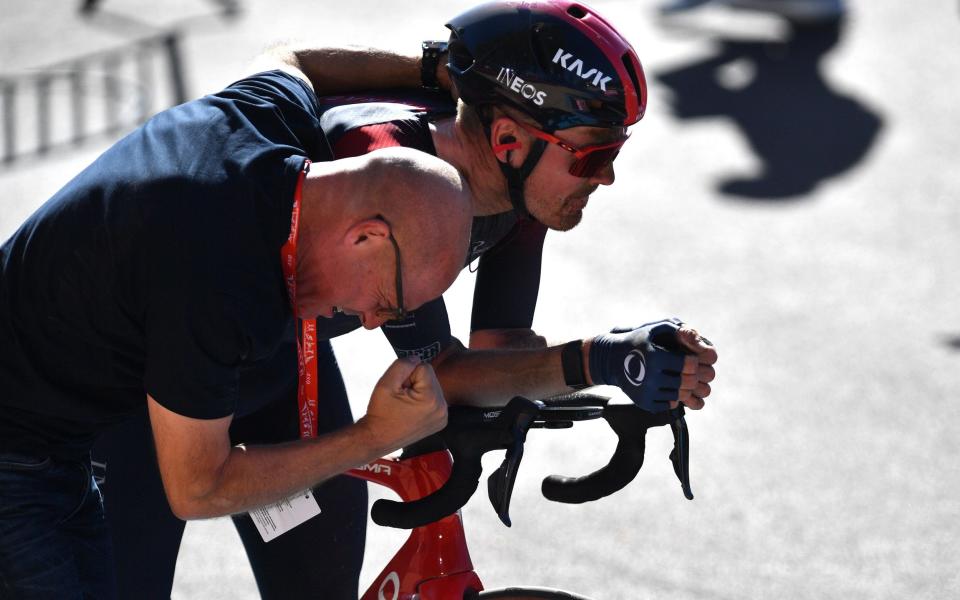
Brailsford had an interesting upbringing. Born in Derbyshire in 1964, his family moved to Snowdonia when he was a boy. His father John was a blacksmith who moonlighted as an Alpine guide, ice-climber, canoeist and long-distance cyclist. “He was orphaned at seven and if you think I’m driven, you should see him,” Brailsford once said of his dad.
That work ethic clearly rubbed off on Brailsford who took himself off to the Alps as a young man, with zero French and even less money, and managed to convince a team in St Etienne to take him on. He stayed for three years. “I couldn’t phone home, couldn’t really understand people and was desperately lonely,” he later recalled. “But because everyone in Wales told me, ‘It’s nuts, you’re going to fail’ I told myself, ‘Right, there’s no way I’m going back even if I hate it’. And for a while, I did hate it.” It was a formative experience. Not only did he learn French, he became obsessed with sports physiology and psychology, so much so he returned to study sports science at Chester University just as it was beginning to emerge.
It is that hinterland which makes Brailsford so fascinating. I remember sitting down with him and Wiggins together once. It was before the 2015 edition of Paris-Roubaix at the Team Sky hotel in Kortrijk and remains one of the most fascinating interviews I’ve ever done. I began by asking them to recall their impressions of each other when they first met in the late 1990s. Wiggins’s answer was unexpected. “I just remember this goatee,” he said. “You had this goatee at the time, like David Brent. If I’m totally honest I thought you were a bit shady because you had a Merc Coupé. A bit of a gangster, with sort of self-done tattoos.” Brailsford looked rather embarrassed. It was not the image he liked to portray of himself at that time.
It sort of sums him up though. Brailsford - who later had the tattoos removed - has always been a bit of a chameleon. A survivor. A man who drove himself from humble beginnings to great heights, who built an empire, got caught up in controversy, went to ground, reinvented himself. His survival instincts even earned him a nickname in the press: Teflon Dave. Now he embarks on his latest and greatest challenge to date. Like Sir Clive Woodward at Southampton all those years ago, there will be many waiting to shout: ‘What does he know about football?’. It should be remembered, though, Brailsford has already performed a similar role at OGC Nice, who now sit second in Ligue 1. It is going to be fascinating to see what he does at United.

 Yahoo Sport
Yahoo Sport 






































